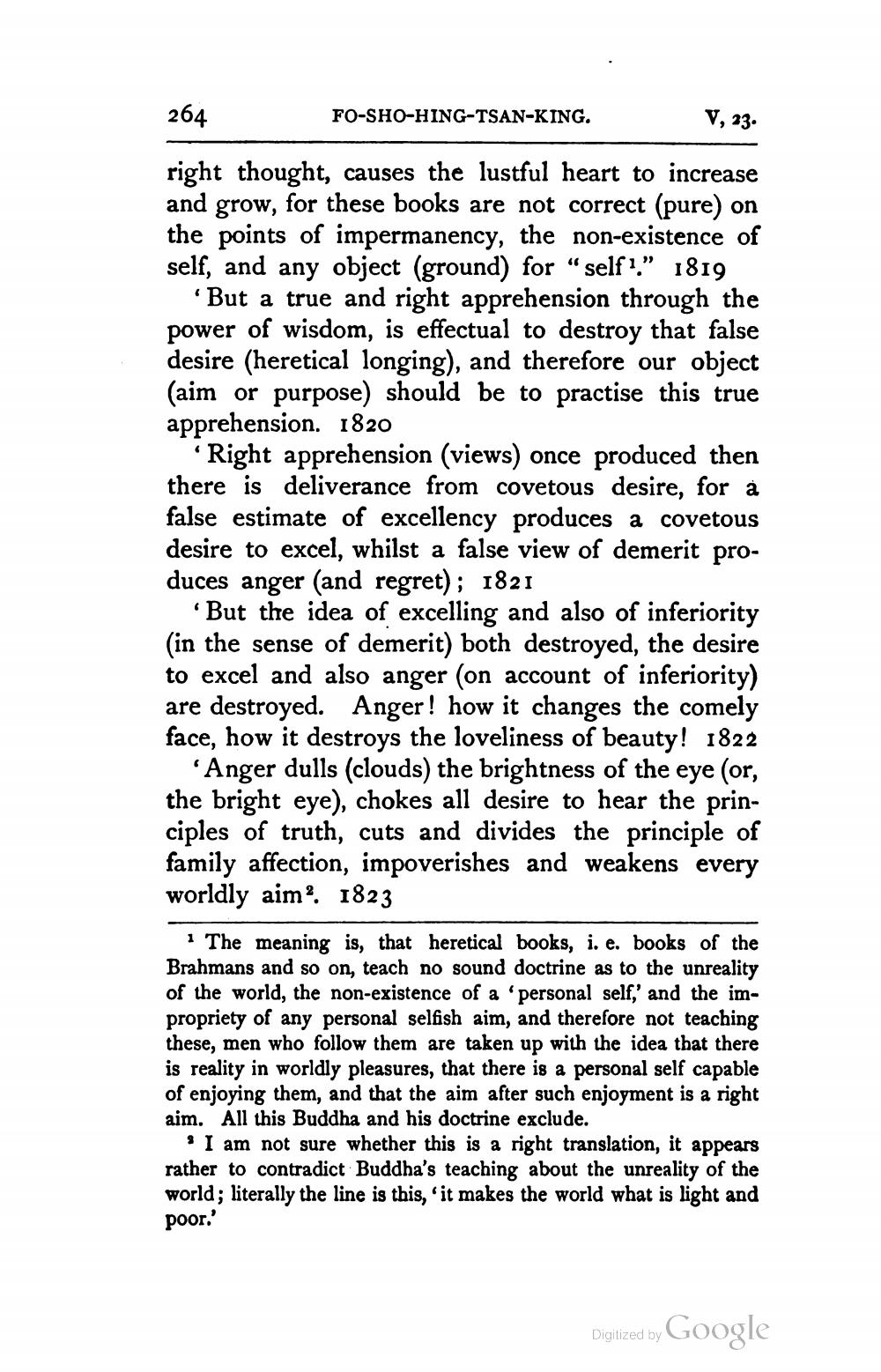________________
264
FO-SHO-HING-TSAN-KING.
V, 23.
right thought, causes the lustful heart to increase and grow, for these books are not correct (pure) on the points of impermanency, the non-existence of self, and any object (ground) for “self?.” 1819
But a true and right apprehension through the power of wisdom, is effectual to destroy that false desire (heretical longing), and therefore our object (aim or purpose) should be to practise this true apprehension. 1820
Right apprehension (views) once produced then there is deliverance from covetous desire, for a false estimate of excellency produces a covetous desire to excel, whilst a false view of demerit produces anger (and regret); 1821
But the idea of excelling and also of inferiority (in the sense of demerit) both destroyed, the desire to excel and also anger (on account of inferiority) are destroyed. Anger! how it changes the comely face, how it destroys the loveliness of beauty! 1822
'Anger dulls (clouds) the brightness of the eye (or, the bright eye), chokes all desire to hear the principles of truth, cuts and divides the principle of family affection, impoverishes and weakens every worldly aim? 1823
1 The meaning is, that heretical books, i. e. books of the Brahmans and so on, teach no sound doctrine as to the unreality of the world, the non-existence of a personal self,' and the impropriety of any personal selfish aim, and therefore not teaching these, men who follow them are taken up with the idea that there is reality in worldly pleasures, that there is a personal self capable of enjoying them, and that the aim after such enjoyment is a right aim. All this Buddha and his doctrine exclude.
'I am not sure whether this is a right translation, it appears rather to contradict Buddha's teaching about the unreality of the world; literally the line is this, it makes the world what is light and poor.'
Digitized by Google




